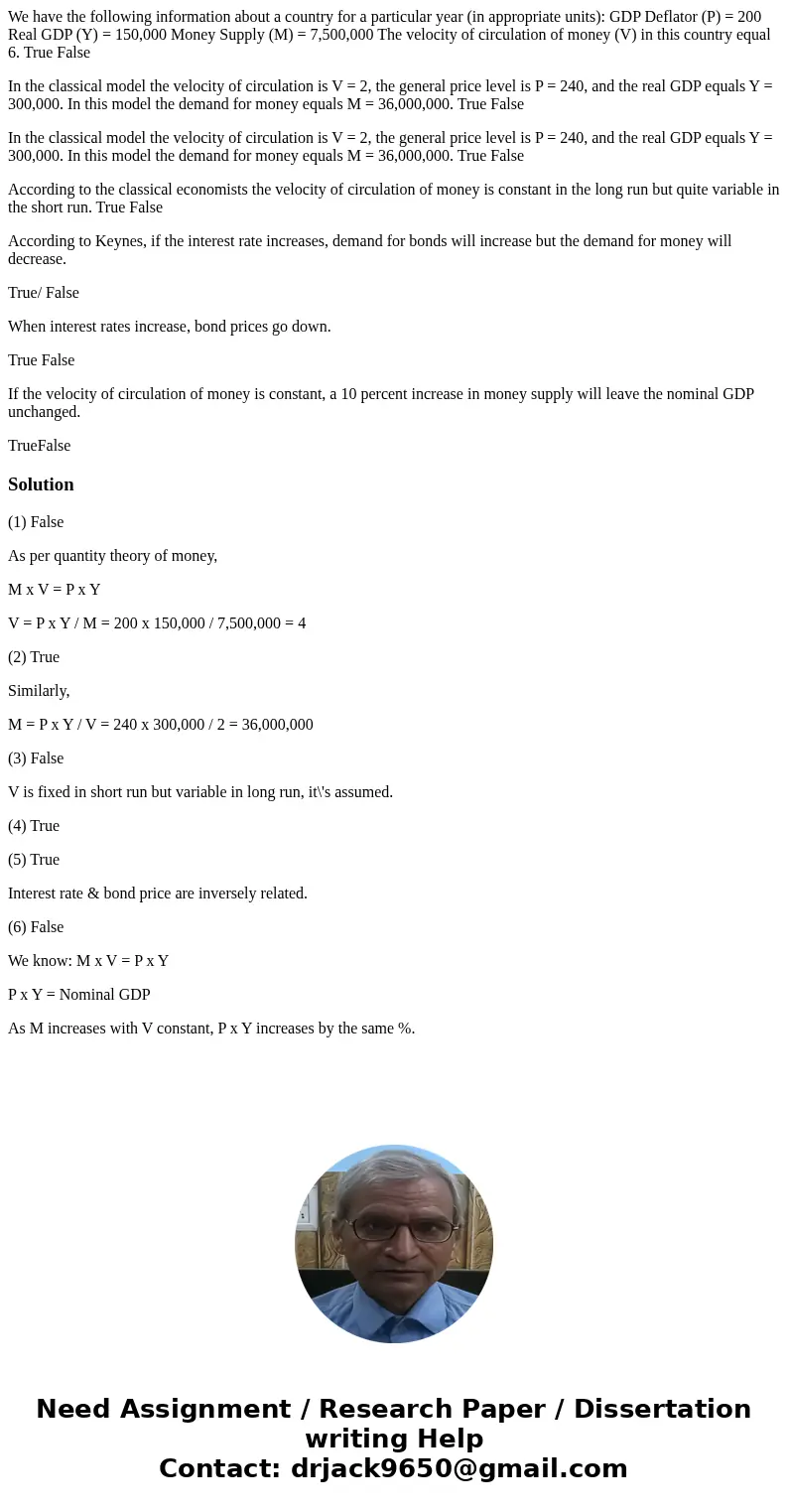We have the following information about a country for a part
We have the following information about a country for a particular year (in appropriate units): GDP Deflator (P) = 200 Real GDP (Y) = 150,000 Money Supply (M) = 7,500,000 The velocity of circulation of money (V) in this country equal 6. True False
In the classical model the velocity of circulation is V = 2, the general price level is P = 240, and the real GDP equals Y = 300,000. In this model the demand for money equals M = 36,000,000. True False
In the classical model the velocity of circulation is V = 2, the general price level is P = 240, and the real GDP equals Y = 300,000. In this model the demand for money equals M = 36,000,000. True False
According to the classical economists the velocity of circulation of money is constant in the long run but quite variable in the short run. True False
According to Keynes, if the interest rate increases, demand for bonds will increase but the demand for money will decrease.
True/ False
When interest rates increase, bond prices go down.
True False
If the velocity of circulation of money is constant, a 10 percent increase in money supply will leave the nominal GDP unchanged.
TrueFalse
Solution
(1) False
As per quantity theory of money,
M x V = P x Y
V = P x Y / M = 200 x 150,000 / 7,500,000 = 4
(2) True
Similarly,
M = P x Y / V = 240 x 300,000 / 2 = 36,000,000
(3) False
V is fixed in short run but variable in long run, it\'s assumed.
(4) True
(5) True
Interest rate & bond price are inversely related.
(6) False
We know: M x V = P x Y
P x Y = Nominal GDP
As M increases with V constant, P x Y increases by the same %.

 Homework Sourse
Homework Sourse